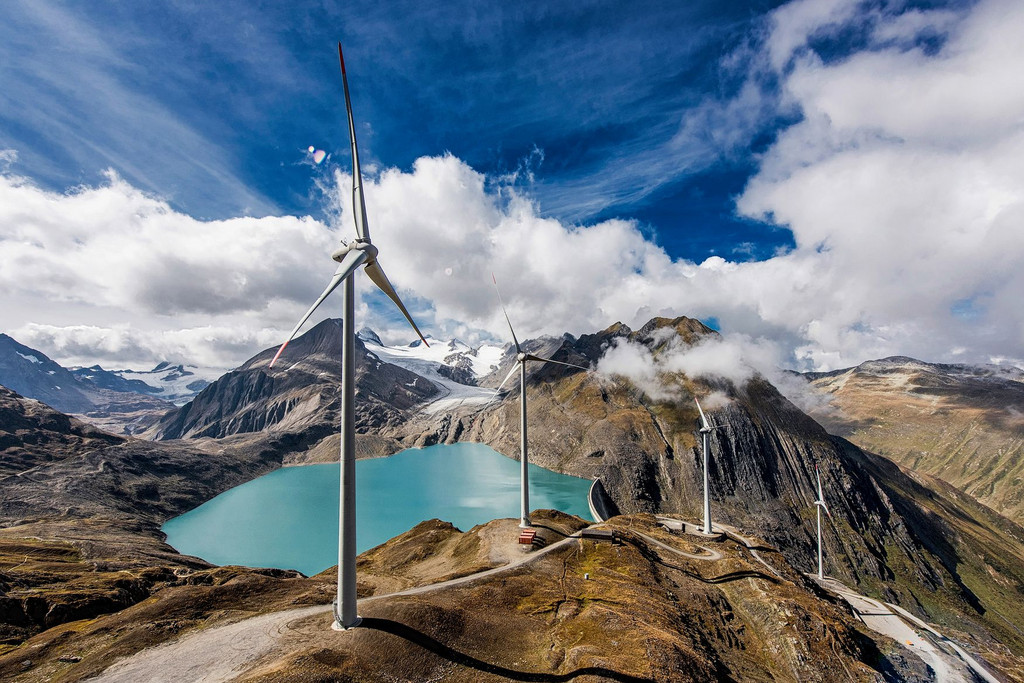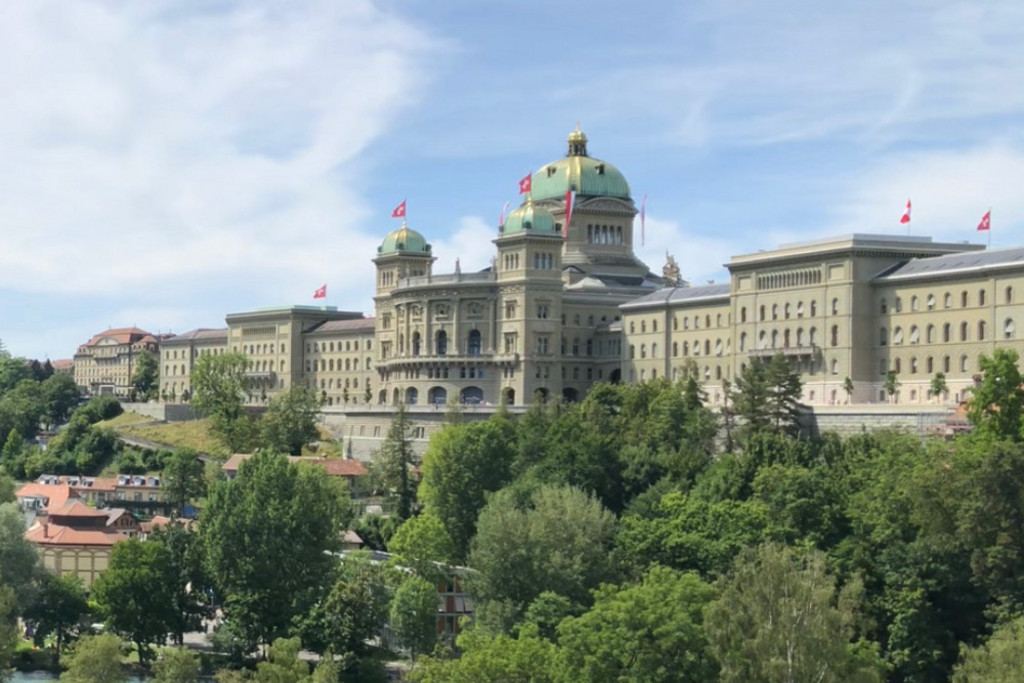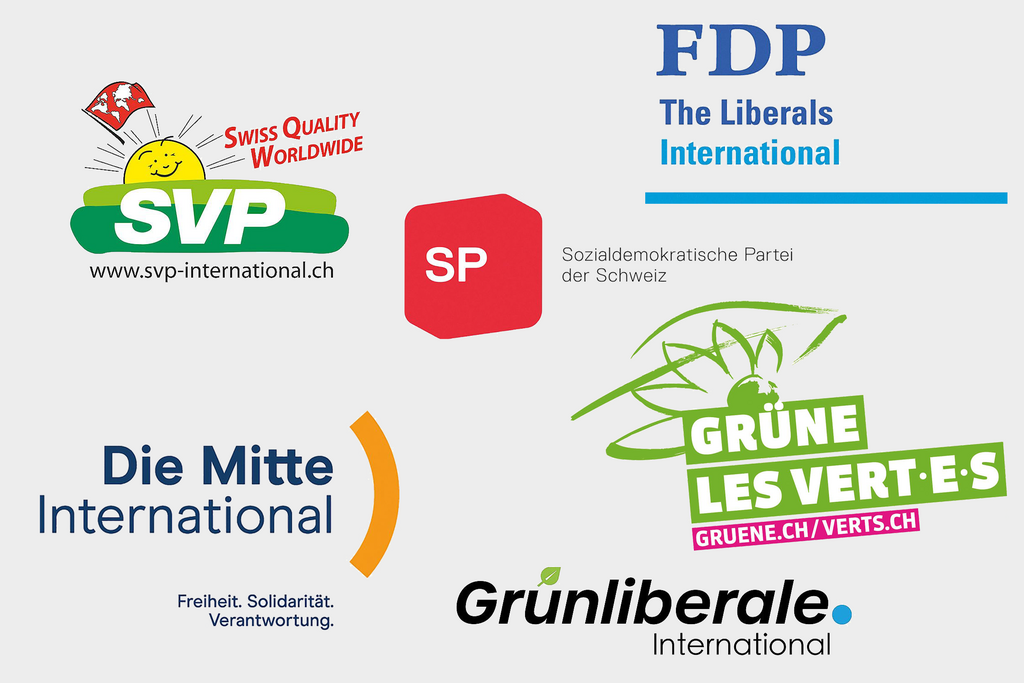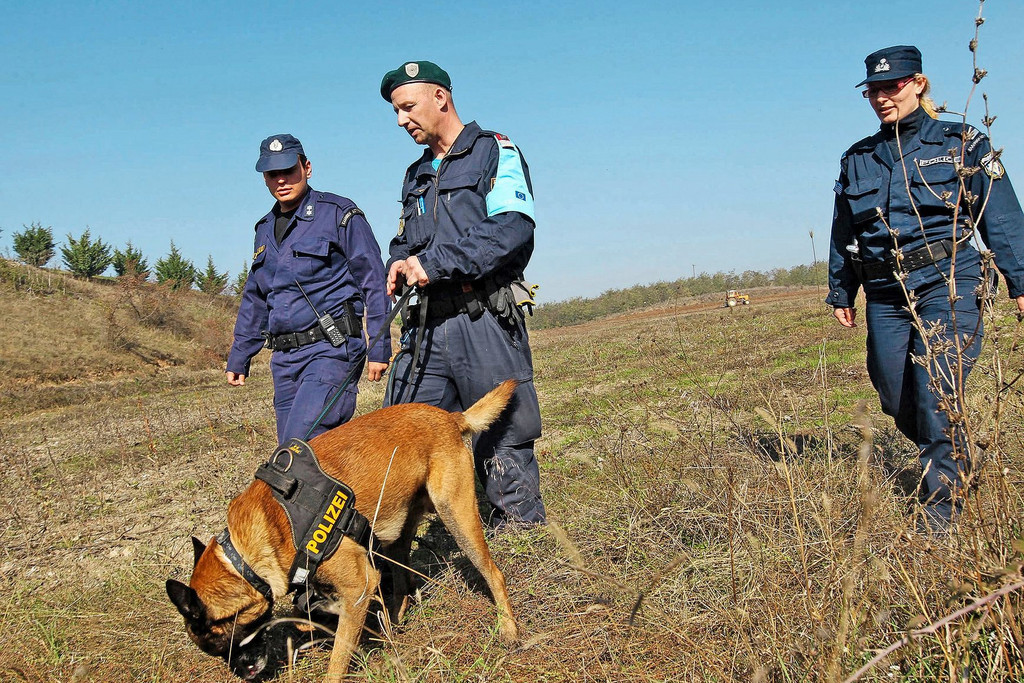The bill’s official title is the “2050 Energy Strategy. The First Package of Measures.” However, “package” is a massive understatement; “raft” would be a more apt description. A 47-page piece of legislation is actually being voted on. The new Energy Act alone contains 77 articles, while various pieces of legislation will also be amended, including the CO2 Act, the Spatial Planning Act, the Electricity Act, the Electricity Supply Act and the Nuclear Energy Act. Parliament has chewed over the energy strategy for around three years.
It all began with the nuclear disaster in the Japanese city of Fukushima in 2011. In the same year, the Federal Council and Parliament made the fundamental decision to gradually withdraw from nuclear power. The international market environment has also changed rapidly, and new technologies have transformed the interaction between the various sources of energy. In the view of the government and Parliament, all of this calls for a restructuring of the entire Swiss energy system. In short, it is a matter of increasing energy efficiency while at the same time reducing consumption and promoting and expanding renewable energies.
Withdrawal from nuclear energy
Probably the most striking and contentious part of the entire bill is the withdrawal from nuclear energy. The construction of new nuclear power plants would be prohibited. However, the existing ones would be permitted to continue operating unrestrictedly provided they are deemed safe by the supervisory authorities. That does not go far enough for the Green Party. Through a popular initiative it called for not only a ban on new nuclear power plants but also the decommissioning of all five existing ones in Switzerland by 2029 at the latest. That was too fast-paced for the Swiss electorate, which rejected the proposal on 27 November 2016.
The goal of withdrawing from nuclear energy in the distant future nevertheless remains intact. Renewable energies are to replace it to some extent. In hydropower, Switzerland possesses a plentiful source of renewable energy with a rich tradition. Additionally, the “new” renewable energies, namely solar power, wood, biomass, wind, geothermal energy and ambient heat, are making up a growing share of our nation’s energy supply. However, just 21.4 % of energy consumed in Switzerland currently comes from renewable sources of energy. These new renewable energies would therefore be heavily promoted. Electricity production from such sources is to be increased from around three terrawatt hours at present to over 11 terrawatt hours by 2035. That would be around half as much as the Swiss nuclear power plants generate today.
More money is to be provided to promote renewable energies. The network surcharge for electricity consumers is to rise by 2.3 cents. For a family of four, that would cost around 100 Swiss francs a year, which is 44 more than at present. To better promote renewable energies, the construction of production plants in nature conservation areas would also be made easier. Existing large-scale hydropower plants would be subsidised by 0.2 cents per kilowatt hour from the network surcharge.
In order to achieve the objectives, not only should renewable energies be promoted, but energy efficiency must also be increased. By 2035, energy consumption per person and year – measured against the level in 2000 – is to be cut by 43 % and electricity consumption by 13 %. The key instrument here is the existing buildings programme, which would be expanded. In future, 450 million Swiss francs could go towards this from the CO2 duty instead of 300 million at present. Energy-efficient building renovations are also to be encouraged through tax incentives. Tighter regulations would apply to car importers in future, enabling more eco-friendly vehicles to be brought in. The Federal Council could also stipulate provisions for the import of intelligent measurement and control systems for end consumers.
Leaving it to the market
This is all too much for the Swiss People’s Party (SVP), which is why it called the referendum. It believes the energy strategy is downright “disastrous” for Switzerland. Party President Albert Rösti has repeatedly said that there is no need to decide now on how the energy landscape will look in 35 years’ time. This could safely be left to the market as the most energy-efficient systems would also then prevail. He says: “Unless we fight the Energy Act, the price of electricity, petrol and oil will rise over the coming years. This will have an adverse impact on the rural community, families, small and medium-sized businesses, farms and tenants, in particular.” Rösti anticipates that the proposed measures will result in horrendous costs of around 3,200 Swiss francs per family per year. This figure is nevertheless contentious and has even been dubbed misleading because it cannot be derived from the bill that is being put to the vote.
The SVP has based its calculations on the second package of measures where a climate and energy management system is planned. Firstly, this proposal has not even been debated in Parliament yet and, secondly, it is not considered capable of securing majority support.
National Councillor Toni Brunner, Rösti’s predecessor as SVP President, warns: “If we are to abruptly relinquish almost 40 % of the electricity generated by our nuclear power plants, this has to be replaced. Achieving that with just renewable energies, such as wind and solar power, is totally unrealistic.” Brunner continues: “Wind parks transform and disfigure our landscapes, new hydropower projects are being met with resistance, and solar roofs will not make up the shortfall. Switzerland will have to make up the deficit with electricity imports, either from French nuclear plants or German coal-fired power stations. This would make us even more reliant on foreign countries and susceptible to blackmail.”
Proponents warn of “dirty electricity” imports
Supporters of the energy strategy argue this is incorrect and, in fact, it is the other way around. Those who believe a no vote and therefore maintaining the status quo is the right course are ignoring reality, remarked Daniel Fässler, the Christian Democratic People’s Party (CVP) National Councillor, during the parliamentary debate: “Three of the five nuclear power plants will be decommissioned over the coming years in any case, with or without the energy strategy. That equates to around 14 % of current electricity production. In the event of a no vote, the shortfall in power would have to be made up with imports from the EU, increasing our reliance on other countries enormously and weakening security of supply,” explained Fässler. “Investment would not be made in Switzerland but instead in the EU to the detriment of the Swiss economy.”
Roger Nordmann, leader of the SP parliamentary group, went a step further: “The nuclear power plants are ageing and becoming prone to breakdown and faults. To go on as before would require us to plan for new nuclear power stations. Apart from the fact that this would not be desirable on safety grounds, it would not be feasible politically or legally and would be economically reckless.” If the energy strategy were to be rejected, hydropower and new renewable energies could not be enhanced and Switzerland would “become heavily dependent on the import of dirty electricity”, according to Nordmann. This would increase the cluster risk as Switzerland already depends on the fossil fuels oil and gas for 65 % of its energy supply.
Picutre The “2050 Energy Strategy” is to promote renewable energies, such as wind power. In the photo: A wind farm on the Nufenen Pass Photo: Keystone





![[Translate to en:]](/fileadmin/_processed_/d/2/csm_Revue_202204_Huehnerfarm_SH-Reportage_3074_7901ca94df.jpg)




Comments
Comments :
I am waiting for the courts in the US to pass judgement in September on who demonstrated what and who owes what to whom. Please include that option in your new regulations. C.C.
Is there anyone interested?